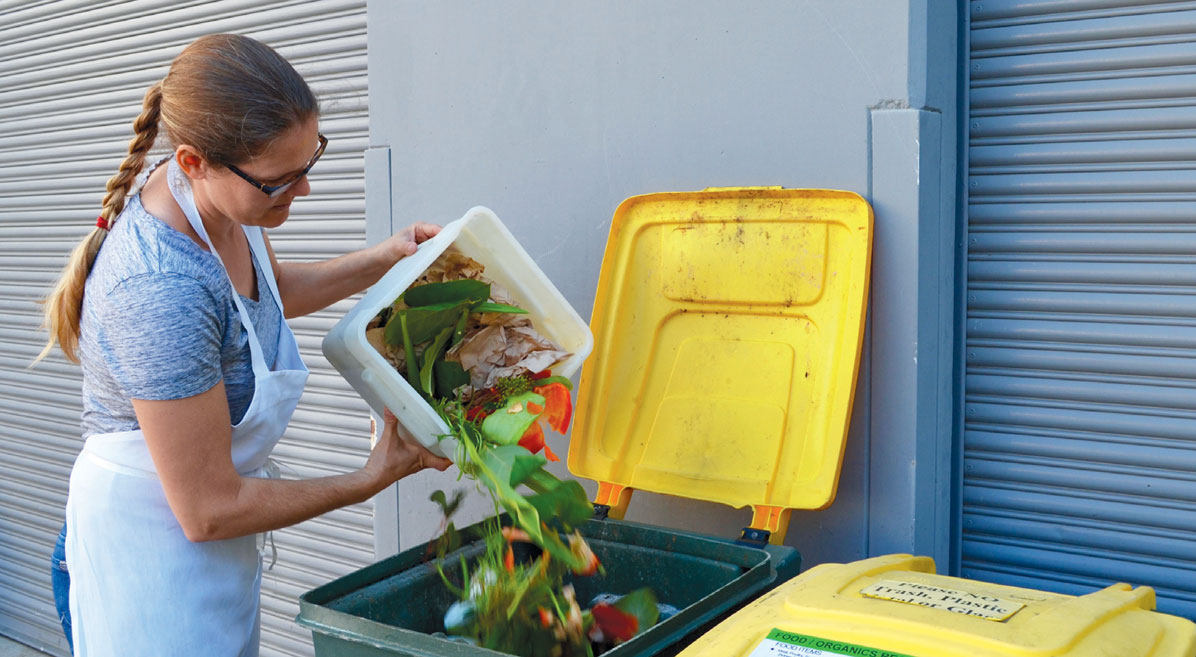
Image Source: Google
In today's world, sustainability and environmental consciousness are becoming increasingly important in all aspects of life, including the workplace. One of the most effective ways for offices to reduce their environmental impact is by implementing eco-friendly practices. Office composting is a simple yet powerful solution that can transform your workplace into a more sustainable and eco-friendly environment. In this article, we will explore the benefits of implementing an office composting service and how it can make a positive impact on both the environment and your workplace.
Benefits of Office Composting
Implementing an office composting facility can bring a wide range of benefits to your workplace. Here are some of the key advantages:
Reduction of Waste
- Composting allows offices to divert a significant amount of organic waste from landfills, reducing the overall waste generated by the workplace.
- By composting organic materials such as food scraps and paper waste, offices can significantly reduce their carbon footprint and contribute to a more sustainable environment.
Creation of Nutrient-Rich Soil
- Composting organic materials creates nutrient-rich soil that can be used to enhance landscaping around the office or donated to local community gardens.
- This nutrient-rich soil can help improve soil quality, promote plant growth, and reduce the need for chemical fertilizers.
Promotion of Sustainability
- Implementing an office composting service demonstrates a commitment to sustainability and environmental stewardship, which can improve the company's reputation and appeal to environmentally conscious employees and clients.
- Composting is a simple and effective way for offices to contribute to a more sustainable future and inspire others to adopt eco-friendly practices.
How to Implement an Office Composting Service
Implementing an office composting service is a relatively simple process that can have a big impact on your workplace's environmental sustainability. Here are some steps to help you get started:
Evaluate Your Office's Needs
- Assess the amount and type of organic waste generated by your office to determine the size and scope of the composting program needed.
- Consider factors such as available space, employee participation, and potential partnerships with local composting facilities or community gardens.
Set Up Composting Stations
- Place clearly labeled composting bins in convenient locations throughout the office, such as in the kitchen, break room, or near printer stations.
- Provide employees with guidelines on what can and cannot be composted to avoid contamination and ensure the success of the program.
Educate and Engage Employees
- Hold training sessions or workshops to educate employees about the benefits of composting and how to properly separate organic waste.
- Encourage participation and engagement through incentives such as recognition programs or rewards for departments that consistently compost effectively.
Choosing the Right Composting Service
When selecting an office composting service, it is important to choose a provider that aligns with your office's needs and values. Here are some factors to consider when choosing a composting service:
Location and Service Area
- Choose a composting service that operates in your area and can easily pick up and process organic waste from your office regularly.
- Consider the provider's service area and schedule to ensure convenient and timely collection of compostable materials.
Composting Method
- Research the composting methods used by the service provider to ensure they align with sustainable practices and produce high-quality compost.
- Ask about the provider's process for sorting, processing, and distributing compost to ensure that it meets your office's standards and environmental goals.
Cost and Sustainability Practices
- Compare the costs and pricing structures of different composting services to find a provider that offers competitive rates and transparent pricing.
- Consider the provider's sustainability practices, such as the use of electric vehicles for transportation or partnerships with local farms or gardens, to support businesses that prioritize environmental responsibility.
Measuring the Impact of Office Composting
Tracking and measuring the impact of your office composting program is essential to understanding its effectiveness and making adjustments for continuous improvement. Here are some ways to measure the impact of your office composting service:
Waste Diversion Rate
- Calculate the amount of organic waste diverted from landfills through composting to determine the program's waste diversion rate and environmental impact.
- Set goals for increasing waste diversion and monitor progress over time to achieve greater sustainability results.
Employee Participation
- Track employee participation rates and feedback to gauge the success of the composting program and identify opportunities for improvement or expansion.
- Engage employees through surveys, contests, or recognition programs to promote ongoing support and enthusiasm for composting initiatives.
Environmental Benefits
- Quantify the environmental benefits of composting, such as reduced greenhouse gas emissions, improved soil health, and conservation of natural resources, to highlight the positive impact of your office's sustainability efforts.
- Share success stories and accomplishments with employees, clients, and stakeholders to showcase your office's commitment to environmental responsibility and inspire others to adopt similar practices.
By implementing an office composting service, your workplace can make a significant impact on the environment, promote sustainability, and create a more eco-friendly and socially responsible workplace culture. Take the first step towards transforming your workplace into a greener and healthier environment today!
